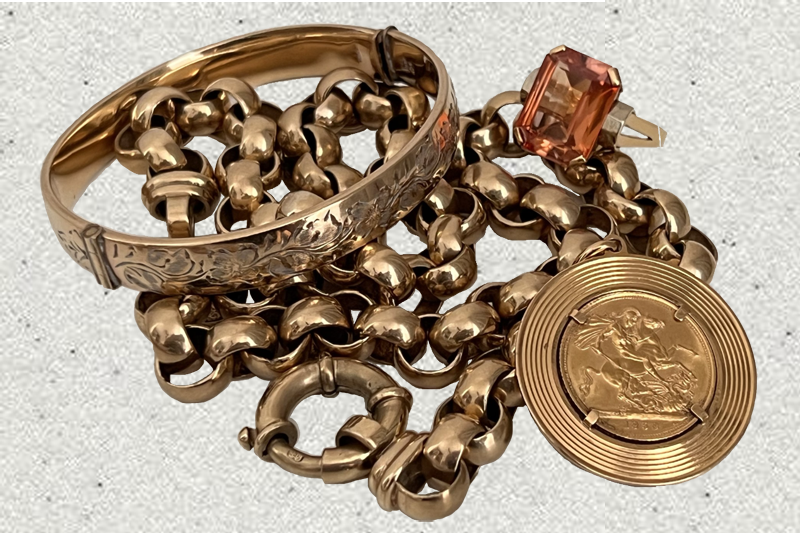Comprehensive Guide to Pawning Jewelry: Unlocking Hidden Value
Introduction to Pawning Jewelry
Pawn shop jewellery can be a strategic financial move, providing immediate cash flow without the need to sell precious items outright. Whether you’re in need of quick funds for emergencies or looking to leverage your jewelry’s value for investment opportunities, understanding the process and nuances of pawn shop jewelry transactions is crucial.
What is a Pawn Shop Jewelry Loan?
A pawn shop jewelry loan is a secured loan where your jewelry serves as collateral. Unlike traditional loans that rely heavily on credit history, pawn loans are approved based on the appraised value of the jewelry you bring in. This makes it accessible to individuals with varying financial backgrounds, as credit checks are not typically required.
How Does Pawning Jewelry Work?
Step-by-Step Guide to Pawning Jewelry
- Assessment: The first step involves bringing your jewelry to a reputable pawn shop for assessment. Professional pawnbrokers evaluate the quality, authenticity, and market value of each piece.
- Offer: Based on the assessment, the pawnbroker makes an offer. This offer reflects the loan amount they are willing to provide against your jewelry.
- Negotiation: There may be room for negotiation. Experienced pawnbrokers understand the sentimental and financial value of jewelry and can often adjust their offers accordingly.
- Agreement: Once both parties agree on the loan terms, a pawn ticket is issued outlining the loan amount, interest rate, and redemption period.
- Security: Your jewelry is securely stored throughout the loan term. Pawn shops prioritize the safekeeping of pledged items.
Benefits of Pawning Jewelry
Immediate Cash Flow
Pawning jewelry provides quick access to cash without affecting your credit score. This is ideal for urgent expenses such as medical bills, home repairs, or unexpected travel costs.
No Credit Check
Unlike conventional loans, pawn shop loans do not require credit checks or income verification. Approval is solely based on the collateral’s value, making it accessible to individuals with poor or no credit history.
Retention of Ownership
One of the primary advantages of pawning jewelry is that you retain ownership of your items throughout the loan term. Once you repay the loan amount plus any accrued interest Melbourne gold buyers, your jewelry is returned to you in its original condition.
Flexible Repayment Options
Pawn shops offer flexible repayment plans, allowing borrowers to extend their loan periods if needed by paying interest fees. This flexibility ensures that borrowers can manage their financial obligations without undue stress.
What Happens if You Default?
In the event that you cannot repay the loan, the pawn shop retains ownership of the jewelry. However, there are no further financial implications for the borrower. The transaction is purely collateral-based, ensuring that defaulting on a pawn loan does not impact credit scores or result in debt collection efforts.
Tips for Pawning Jewelry Successfully
Research Pawn Shops
Choose a reputable pawn shop with a history of fair assessments and transparent practices. Online reviews and recommendations can provide valuable insights into the reliability of pawnbrokers.
Know Your Jewelry’s Value
Before visiting a pawn shop, have a general idea of your jewelry’s market value. This knowledge empowers you during negotiations and ensures you receive a fair loan offer.
Understand Loan Terms
Review the terms and conditions of the pawn ticket carefully. Pay attention to interest rates, repayment schedules, and any fees associated with extending the loan term.
Maintain Documentation
Keep all paperwork related to the pawn loan in a secure place. This includes the pawn ticket, receipts, and any correspondence with the pawn shop.
Conclusion
Pawning jewelry offers a practical solution for individuals seeking immediate funds without compromising long-term financial goals. By understanding the process, benefits, and potential risks associated with pawn shop jewelry transactions, borrowers can make informed decisions that align with their financial needs.












:max_bytes(150000):strip_icc()/labgrownlede-2b7540f7f7404558a08f1a555862f3d3.jpg)

:max_bytes(150000):strip_icc()/lab-grown-diamond-engagement-rings-composite-2-0423-13b76c68392444f382764bee3be76d31.jpg)








